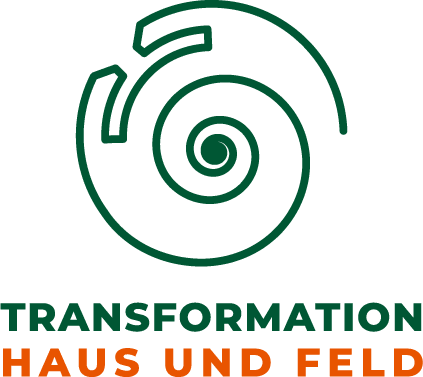It is a place where the professions we need to live well, justly and healthily with each other emerge. It enables practical knowledge to be passed on. It is a place where a culture of togetherness emerges that makes it easy for us to live, learn and work together as equals. A transformation centre for all is a place where competition, exclusion, exploitation and profiteering have no place, but are replaced by better: Inclusion, self-organisation, common good and the sharing of knowledge and methods. The knowledge and methods generated here are as freely available as possible.
A transformation centre for all is not created on the drawing board or on a greenfield site, it is created on what is already there: brown fields, empty and forgotten industrial halls and ruins of a dead and deadly fossil infrastructure. In the transformation centre for all, rededication, creativity, curiosity and the search for regenerative solutions are in the air. Every city and every region needs such a centre that empowers local people to cope with climate change and to live in a resource-light and climate-positive way: to restore their natural environment. And every region has places just waiting to be occupied and revitalised.
- In Cologne, the Wandelwerk team repurposed an old vacant car dealership to house a bicycle repair workshop, microgreens cultivation, and spaces for culture and neighbourhood work.
- In Albi, the city has declared food self-sufficiency within a 60-kilometre radius as a goal; it buys (and socialises) land for organic farming, trains people and creates the necessary infrastructure.
- In Cleveland, a group of friendly residents have transformed an illegal dump into a beautiful community space: an urban farm that first became the cultural centre of the otherwise precarious neighbourhood, then spawned a whole new culture of mutual aid, meaning and dignity via self-organised neighbourhood design.
- In Chicago, a transdisciplinary team of pioneers converted an old meat packing plant and an old fire station into a hub for the circular economy of small businesses. There, interested people learn all about growing different types of food indoors, the opportunities of a circular economy, and the possibilities of regenerative living in cities.
- In 2020, Amsterdam decided to become Europe’s first lab for the circular economy: The goal is to use the Corona Crisis to step out of current production and consumption patterns and to counter the climate crisis with a concrete programme. The whole city is setting out on the path to a regional circular economy.
These are just a few examples – they show us that it is possible.
We simply have to do it.
